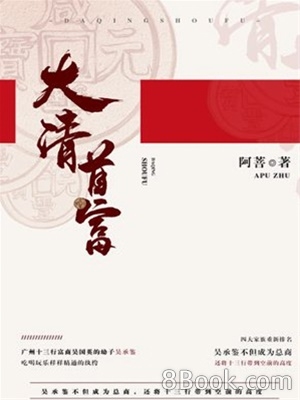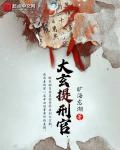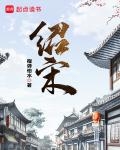Chapter 204: The Butcher's Knife (IV)
The Minister of War, Fu Hai, thought that Liu Tongxun would comment on the strategy of eliminating Huo Chong, but Liu Tongxun did not. When the Jinshi of the second year of Yongzheng's reign heard Yongzheng ask him about military affairs, he immediately responded: "Your Majesty, I don't understand military affairs. I dare not comment on this."
Yongzheng was a little disappointed, but soon he was relieved. At least Liu Tongxun knew to admit that he didn't understand military affairs, which was good.
Looking at the memorial from the Ministry of War handed over by Tong Jia Fahai, Yongzheng sighed, "It would be great if there were talents like Zhang Cunren and Hou Fangyu back then!"
Liu Tongxun lowered his head and said nothing. When he was in the Southern Study, he met Fang Bao. Fang Bao was a commoner who went to the study, but people at that time treated him as a prime minister. It was Fang Bao who suggested Liu Tongxun to look through the Shandong materials of the Shunzhi Dynasty.
The peasant uprising in Yuyuan , Shandong in the late Ming Dynasty developed into a powerful peasant armed force in the early Qing Dynasty, gathering about one million people and occupying the Yuyuan jungle area as their base. With Ren Qi, Zhang Qi, Li Huajing and Fan Shenxing as their leaders, they built camps, dug tunnels, appointed officials and divided duties, and organized troops, becoming the most organized and disciplined peasant anti-Qing armed force in the peasant uprising in the early Qing Dynasty.
In the second year of the Shunzhi reign of the Qing Dynasty (1645), the Qing Dynasty successively conquered Caozhou (now Heze, Shandong), Puzhou (now southwest of Fan County), Dingtao, and Chengwu (now Chengwu), supported the Ming Zhongyi Wang to establish his capital in Caozhou and proclaimed himself emperor, changed the reign title to the first year of Tianzheng, and successively conquered Juye and Dongming. The Qing Dynasty mobilized troops from Hebei and Shandong provinces to besiege Caozhou, but failed for two months. In the fourth year, the Yuyuan righteous army defeated Nanle in the west and attacked Daming in the north, with the potential to advance to Beijing.
It was not until the 12th year of Shunzhi that Zhang Cunren, the governor of three provinces of the Qing Dynasty, adopted Hou Fangyu's suggestion of suppression and appeasement. He appointed Zhang Dan, the general of Xuzhou, to investigate the geographical conditions of Yuyuan. He burned the jungle, opened the Yellow River to flood the rebel tunnels, and besieged Yuyuan with heavy troops.
Wherever they went, they did not engage in direct combat with the rebels, but massacred civilians in the rebel territory, with official claims that more than 100,000 people were killed.
Liu Tongxun's ancestors were from Shandong, and from the few words that Liu Tongxun vaguely remembered, it is possible that millions of people were killed.
Based on the information he had seen, Liu Tongxun judged that Huo Chong was just like the rebels that were destroyed sixty years ago, and they were both bandits. Since they were able to win by killing the people back then, they should be able to win now as well.
Listening to Yongzheng's lament about the lack of talent, Liu Tongxun lowered his head and said nothing. The selection of talents was not something Liu Tongxun could interfere with.
At this time, a minister from the military department had arrived, and Yongzheng said to Liu Tongxun: "You go down first."
Liu Tongxun kowtowed quickly and left.
Looking at Liu Tongxun's back, Old Thirteen sighed, "This Liu Qi really has a good son."
Others could not help but sigh. Liu Tongxun's grandfather Liu Bixian was a Jinshi and served as a deputy minister of the Guangxi Division of the Ministry of Revenue. His father Liu Qi was a Jinshi in the reign of Emperor Kangxi and served as the prefect of Ningqiang Prefecture when Liu Tongxun was born.
Three generations of his family were Jinshi (Jinshi), and this background, as well as the calmness and competence shown by Liu Tongxun, are indeed very good.
Including in national affairs, the massacre strategy Liu Tongxun found was not something Yongzheng approved on a whim. After careful discussion and repeated consideration, these military ministers determined that this was indeed the most appropriate method.
Everyone knew that if Liu Tongxun could suppress Huo Chong's rebellion, he would definitely have made a great contribution. Yongzheng wanted to make good use of Liu Tongxun, and with this great contribution, he would be of great use. In the future, Liu Tongxun would at least be a military minister.
But that was all in the future. The current military ministers began to discuss the plan submitted by the Ministry of War. Jinan, Binzhou, Liangshan, and Lanling formed a defense line.
The Thirteenth Brother highly appreciated the fact that the defense should focus on Liangshan. Yongzheng was very satisfied to see that the Thirteenth Brother shared the same view as himself.
Among the military ministers, Zhang Tingyu knew the least about military affairs, so he asked, "This is to defend the western part of Shandong. What if the Huo bandits attack Dezhou to the north, or Xuzhou to the south?"
Those who knew about military affairs did not laugh at Zhang Tingyu after hearing this question. Yongzheng grinned and said, "If Huo Chong dares to do this, we will naturally surround him with heavy troops and wipe him out in one fell swoop."
Zhang Tingyu dared not say anything, but he was still a little worried. The imperial court had sent heavy troops to suppress the rebellion three times, but all failed. Is it really feasible to use heavy troops to suppress the rebellion?
Yongzheng looked at the Thirteenth Brother, who knew what his fourth brother meant, and explained to Zhang Tingyu: "The thief Huo is a good commander. Look at the terrain of Shandong..."
In Shandong's terrain, there is a horizontal mountain range from the Jiaodong Peninsula to the west of Jinan. This mountain range turns southward to the west of Jinan. This terrain plus the rivers really provide good protection for the plains of Jiaodong.
The routes that the government troops could take to attack Huo Chong from Hebei and Henan were very limited, which gave Huo Chong the opportunity to find the main force of the government troops and engage in a decisive battle.
Once Huo Chong left such an excellent defensive environment and entered Dezhou and Xuzhou, which were all plains, the government troops could continue to attack Huo Chong from all directions. Since Huo Chong knew how to use troops, he would definitely not make such a mistake.
Zhang Tingyu understood. Now when someone says Huo Chong knows how to use troops, no one will raise any objection. Previously, Nian Gengyao commented that Huo Chong "uses troops elegantly and fights solidly". Later, two governors of Shandong, Li Shude and Xie Cilü, as well as the later famous general Yue Zhongqi and the imperial envoy Fu Erdan, were all defeated by Huo Chong. Even if the Thirteenth Brother did not say that Huo Chong knew how to use troops, Zhang Tingyu would not underestimate Huo Chong in this regard.
After understanding why there was no need to be extra cautious in the north and south, Zhang Tingyu asked why Liangshan was the key point. Lao Shisan continued to explain that Liangshan was very close to the canal. Once Huo Chong, the bandit, occupied Liangshan, he could attack from Liangshan, cut off the Grand Canal, and extend the "plundering area" all the way to the west.
Theoretically, if Huo Chong's cavalry could have been as reckless and destructive as the cavalry of the Eight Banners of Mongolia, they could have even plundered Luoyang.
Originally, the water transport in the south of the Yangtze River relied on the Grand Canal. If Huo Chong could easily enter and exit Henan, the imperial court's tax revenue would be ruined.
"We will station a large number of troops in Liangshan, so we can attack when we advance and defend when we retreat. As long as we prevent the thief Huo from becoming a bandit, he will surely be destroyed within one or two years!" Old Thirteen explained the entire plan of this strategy.
Zhang Tingyu said nothing after he understood it, and the other military ministers discussed it for a while, but they couldn't find any problems with this plan. If such a plan has problems, then the Qing Dynasty... Haha.
From beginning to end, no one raised any objection to the massacre of Shandong people, and no one even had the slightest aversion to the massacre.
The strategy of trapping Huo Chong and killing all the people in Jiaodong where Huo Chong was was fully adopted.
Once a strategy is adopted, it will naturally be fully implemented. More and more people will know the content of this strategy.
In a house in the capital, several people were sitting and drinking. Someone asked, "Do you want to tell the man in Shandong about this?"
"No rush. Huo Chong is arrogant now and doesn't take people seriously. After a while, when Huo Chong has nowhere else to go, he will listen to our arrangements."
Others agreed, and someone laughed and said, "I just hope Huo Chong is not a silver-plated spearhead. It would be good to kill more Mongolian Eight Banners."
Although in theory these people and the Mongolian Eight Banners were all Yongzheng's subjects and slaves, everyone burst into laughter when they heard this, without any trace of affection that should have existed between them as subjects in the same palace.






